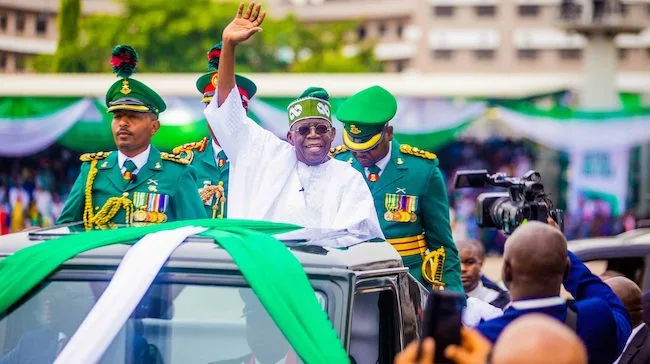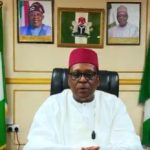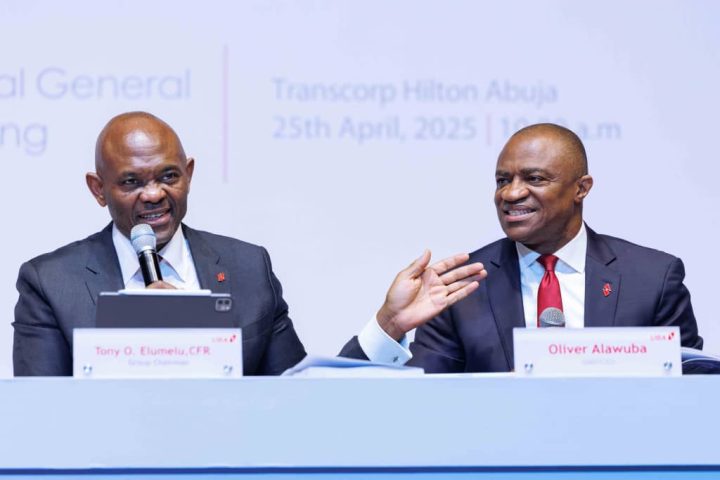Nigerians Struggle with Tinubu’s Reforms
Less than two years into President Bola Tinubu’s administration, Nigerians are feeling the sting of reforms meant to revitalize the economy. Once hailed as the leader who would bring “renewed hope,” Tinubu is now being nicknamed “T-Pain” by citizens frustrated by the hardships they face.
“When you’re struggling to buy food or pay rent, it’s hard to see any hope,” said Lagos resident Emeka John, reflecting the sentiments of many Nigerians.
Join our WhatsApp ChannelTinubu’s administration promised long-term prosperity, but his drastic economic measures—removing fuel subsidies and floating the naira—have brought immediate suffering. Inflation has skyrocketed, and the cost of living has become unbearable for many. The removal of subsidies was intended to free up funds for infrastructure and economic development, yet the ordinary citizen feels the weight of these policies in their daily lives.
Economic Reforms: A Necessary Evil?
The question many are asking is, are these reforms truly necessary? According to the Vice President of the World Bank, Indermit Gill, the answer is yes. Speaking at the 30th Nigerian Economic Summit in Abuja on October 14, 2024, Gill emphasized that these reforms need to be sustained for at least 10-15 years if Nigeria is to transform into an economic powerhouse in Sub-Saharan Africa.
“Nigeria’s economy was in a dire state when this administration took over. Without these reforms, the government might have defaulted on financial commitments like salaries and debt servicing. That would have been catastrophic,” Gill stated.
But how long should Nigerians be expected to endure this hardship? And why do they feel like they are bearing the brunt of policies designed for a better future?
A History of Broken Promises
Nigerians’ skepticism toward Tinubu’s reforms doesn’t arise from nowhere. The country’s leaders have repeatedly failed to deliver on promises, creating a deep distrust in the government. Many people doubt whether the hardship they are experiencing is truly temporary. The interventions that were meant to soften the blow of these reforms—such as infrastructure investment and targeted social programs—have been slow to materialize.
“The government promised interventions, but we’re not seeing them yet. How much longer are we supposed to wait?” asked Chioma Okeke, a small business owner in Enugu.
For citizens like Okeke, it’s difficult to believe that the economic pain will lead to future gain when past governments have repeatedly let the people down.
Understanding the Root of the Problem
The economic crisis Nigeria is facing today wasn’t created by Tinubu. His administration inherited a country on the brink of collapse. When he assumed office, Nigeria’s debt service to revenue ratio was a staggering 97%, with an unresolved forex backlog exceeding $6 billion. The economy was, in many ways, already comatose.
READ ALSO: Dialogue concludes with renewed hope for continental solutions
Drastic measures were inevitable. As part of his “renewed hope agenda,” Tinubu directed the removal of the fuel subsidy, a move that saved the government money but led to widespread inflation. The naira was also floated to allow market forces to determine its value, but this, too, led to price hikes across the board.
“Something had to give. We couldn’t continue on the same path,” argued Senator Ndume, a supporter of the president’s policies, though he also admitted that “some aspects of the reforms have been implemented too hastily.”
What Next for Nigerians?
President Tinubu has framed the hardship as a sacrifice necessary for long-term prosperity. In his 2024 Independence Day speech, he warned that Nigeria must either reform or collapse. “We are at a turning point. We must endure short-term pain for long-term gain,” Tinubu said.
However, Nigerians are not convinced. “We’ve heard this before from previous governments,” said Funmi Adesanya, a teacher in Ibadan. “We are constantly told to sacrifice, but what are they sacrificing?”
The government’s failure to communicate its policies clearly and to implement promised interventions on time has only exacerbated the problem. Experts argue that better engagement with the public could help ease the frustration. “Nigerians need to understand the bigger picture. But the government has to do a better job of explaining it to them,” said economic analyst Musa Adeoye.
Is There Still Hope?
Despite the widespread discontent, Tinubu has continued to defend his “renewed hope” agenda. “I know times are tough, but we are building a stronger foundation for the future,” he said at a recent press briefing.
For now, however, many Nigerians feel trapped between hope and pain. Whether Tinubu will be remembered as “T-Hope” or “T-Pain” depends on whether his administration can turn the tide and deliver on its promises.
In the words of Lagos market trader Aisha Yusuf, “We want to believe in the future, but right now, we need relief.”
Emmanuel Ochayi is a journalist. He is a graduate of the University of Lagos, School of first choice and the nations pride. Emmanuel is keen on exploring writing angles in different areas, including Business, climate change, politics, Education, and others.
- Emmanuel Ochayihttps://www.primebusiness.africa/author/ochayi/
- Emmanuel Ochayihttps://www.primebusiness.africa/author/ochayi/
- Emmanuel Ochayihttps://www.primebusiness.africa/author/ochayi/
- Emmanuel Ochayihttps://www.primebusiness.africa/author/ochayi/


















Follow Us